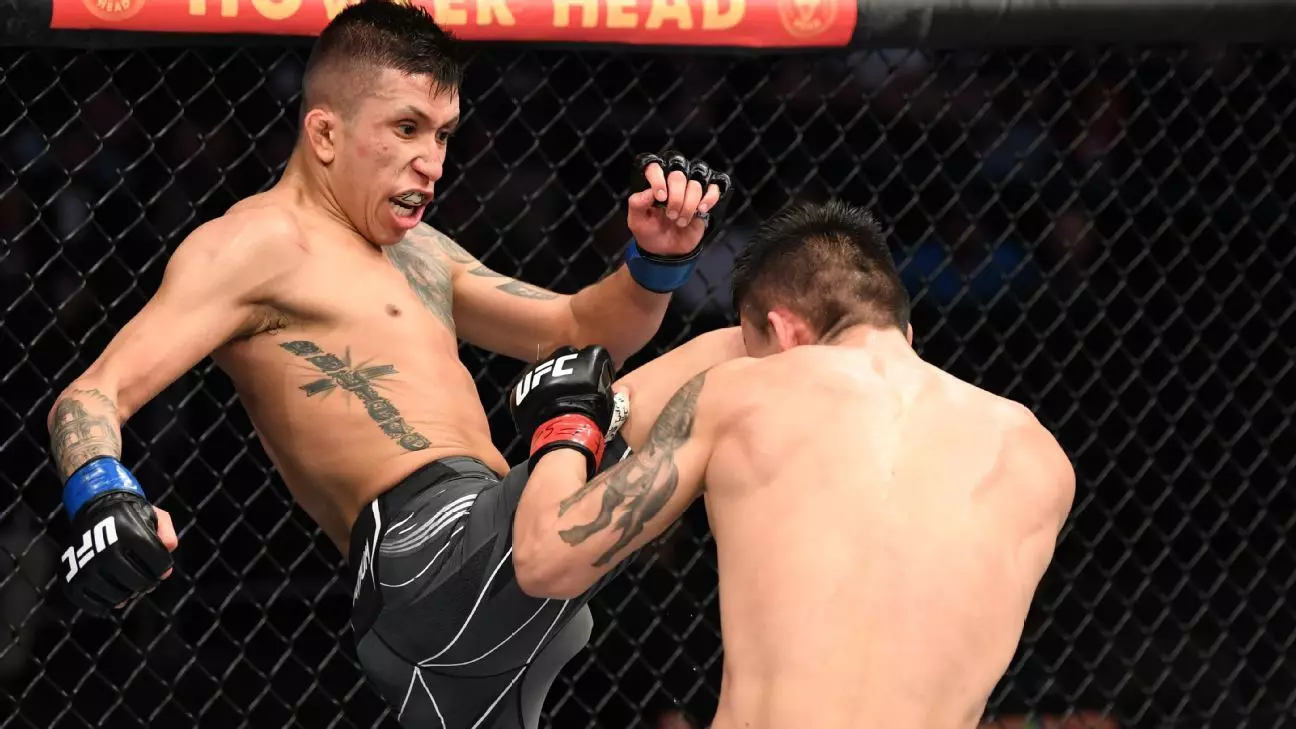The world of mixed martial arts (MMA) is not just a battleground for fighters; it’s also a high-stakes arena where gambling can corrupt the very essence of competition. The case of Jeff Molina serves as a disconcerting reminder of how inside information can ignite a scandal that jeopardizes the integrity of sports. In November 2022, Molina, then an active UFC fighter, engaged in betting on a fight with insider knowledge about an opponent’s undisclosed injury. This unethical behavior has raised significant questions about the regulation of sports betting and the responsibility of athletes within combat sports.
Molina’s actions—placing “significant bets” on the outcome of the Nov. 6 fight between Darrick Minner and Shayilan Nuerdanbieke—are not merely violations of sporting ethics; they are a betrayal of the trust placed in athletes to compete on a level playing field. The Nevada Athletic Commission (NAC) acted upon reports of unusual betting patterns leading up to the fight, where heavy wagering occurred against Minner and for a quick finish. These discrepancies should serve as a wake-up call for regulatory bodies to enhance their oversight of betting activities.
Unraveling the Details
The NAC’s investigation unveiled that Molina was aware of a leg injury affecting Minner prior to the bout, information that was not disclosed as per the regulations governing fighter participation. This lack of transparency is alarming. It’s not just an issue of bet fixing; it becomes a fundamental question regarding the ethics of competition itself. The very fabric of MMA is woven with the ideals of honor, respect, and fair play. Molina’s three-year suspension signifies that breaches of this nature will not be tolerated. However, is a three-year ban sufficient deterrence for potential future transgressors?
While Molina’s absence at the commission hearing suggests an evasion of accountability, it also raises further questions about the culture within the UFC and its fighters. Should we’re facing a systemic issue of integrity where fighters believe they can manipulate outcomes through gambling? Just recently, we witnessed an exponential rise in the sports betting industry, making it critical that both fighters and organizations take responsible steps to ensure the sanctity of the sport is preserved.
The Fallout for Minner
Minner’s situation compounds the turmoil of this scandal. After his defeat to Nuerdanbieke, he faced his own suspension in December 2022 for not disclosing a pre-fight injury, which only appears to corroborate the dismal narrative surrounding this bout. The coinciding suspensions of both Molina and Minner raise an important dialogue about athlete preparedness and transparency. What happens when competitors face pressure—be it financial or professional—to withhold information from regulatory bodies? The potential for exploitation cannot be overstated, as it could lead to a broader contamination of MMA.
As individual fighters confront these ethical dilemmas, the ramifications could ultimately ripple outward, affecting fan engagement and the broader perception of the sport. Athletes must hold themselves to high standards, not just in training and competition but also in ethical judgment.
The Broader Implications for MMA
The unfolding controversy calls into question the UFC’s approach to regulations surrounding betting practices. The NAC’s stringent measures serve as an initial response, yet they expose a loophole that could easily be exploited by savvy fighters and their close circles. The lack of clarity around the lines between competitive spirit and profit motives must be addressed proactively. For instance, the UFC’s decision to cut Minner affects not only the fighter but also sends a stern message to the MMA community about accountability.
As we peer into this murky world of insider betting, we uncover a deeper issue—one that challenges the sanctity of sports, not just MMA. Athletes are not mere gladiators competing for glory; they are representatives of a legacy built on integrity, respect, and fairness. The integrity of sports can easily be undermined by a few individuals willing to breach ethical codes for personal gain. Stakeholders must unite to rebuild trust, establish fortified regulations, and reinforce a culture where transparency prevails.
In an era where betting on sports has become an accepted component of the viewing experience, the importance of stringent oversight cannot be overstated. The stakes are high, and the lies can linger far longer than the momentary thrill of a bet won.


Leave a Reply